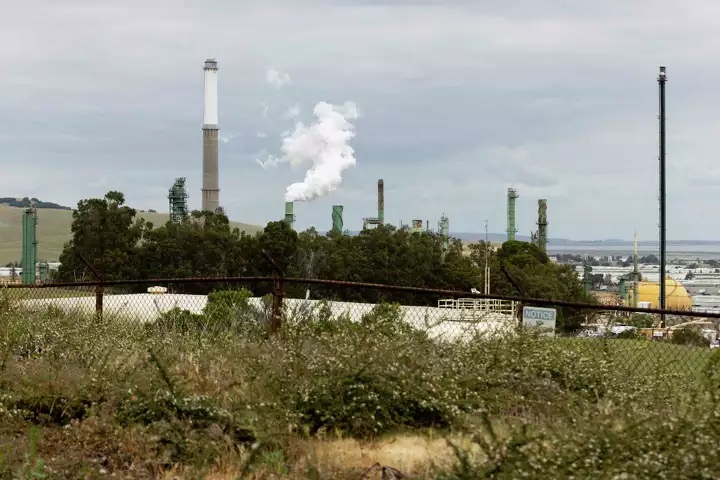The planned closure of Valero Energy’s Bay Area refinery will force the state to depend more on foreign suppliers for gasoline, likely raising prices at the pump.
But, as the San Francisco Chronicle reported, the impacts won’t stop there:
“… California is not prepared for the wave of Bay Area refinery closures that are likely to happen soon, putting thousands of blue-collar workers out of work and costing local communities millions of dollars in tax revenue.”
The Chronicle points out how California politicians have failed to follow through on grand promises about a ‘just transition’ for oil industry workers and impacted communities. After Marathon Oil closed its Martinez refinery in 2020, a study showed more than 20% of the workers were unemployed over a year later – and those who found work had taken a 24% pay cut on average.
As the Chronicle puts it:
“It’s another example of elite Democrats ignoring or downplaying the plight of blue-collar workers – one of the many things that cost them the November election.”
City officials told the Chronicle that Benicia could lose $5-6 million per year in hotel and sales tax dollars, businesses in the local industrial park could lose $75-100 million in annual revenues, and the local school district could lose $2-3 million in property tax support each year.
Contra Costa County has 3,000 direct and 15,000 indirect jobs related to refinery operations, and cities in the County receive $136 million in tax revenues directly – and $836 million indirectly – due to the industry.
In sum, California energy policies are pushing refineries to shut down, but state and local governments aren’t ready for what happens when they do.
Read the full story at the Chronicle website.


